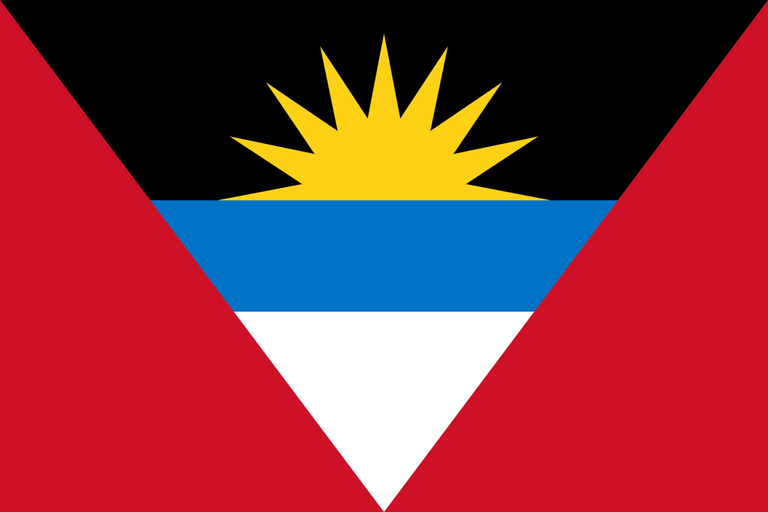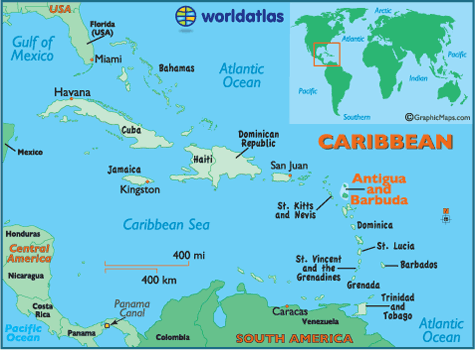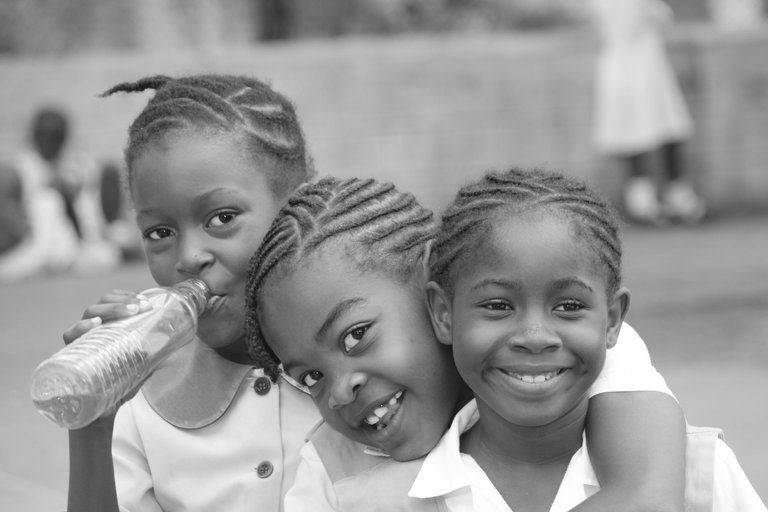
Antigua and Barbuda is an independent Commonwealth country comprising its 2 namesake islands and several smaller ones. Positioned where the Atlantic and Caribbean meet, it's known for reef-lined beaches, rainforests and resorts. Its English Harbour is a yachting hub and the site of historic Nelson's Dockyard. In the capital, St. John's, the national museum displays indigenous and colonial artefacts. Separated by a few nautical miles, Antigua and Barbuda are in the middle of the Leeward Islands, part of the Lesser Antilles, roughly at 17°N of the equator. The country's name was given by Christopher Columbus in 1493 after discovering the island, in honor of the Virgin of La Antigua in the Seville Cathedral. The country is nicknamed "Land of 365 Beaches". Antigua and Barbuda both are generally low-lying islands whose terrain has been influenced more by limestone formations than volcanic activity. The highest point on Antigua is Mount Obama (formerly Boggy Peak), the remnant of a volcanic crater rising 402 metres. The island had warm, steady winds, a complex coastline of safe harbors, and a protective, nearly unbroken wall of coral reef. It would make a perfect place to hide a fleet. And so in 1784 the legendary Admiral Horatio Nelson sailed to Antigua and established Great Britain's most important Caribbean base. Little did he know that over 200 years later the same unique characteristics that attracted the Royal Navy would transform Antigua and Barbuda into one of the Caribbean's premier tourist destinations. English is the official language. Official currency is the Eastern Caribbean dollar.

Climate: Rainfall averages 990 mm (39 in) per year, with the amount varying widely from season to season. In general the wettest period is between September and November. The islands generally experience low humidity and recurrent droughts. Hurricanes strike on an average of once a year. Temperatures average 27 °C (80.6 °F), with a range from 23 °C (73.4 °F) in the winter to 30 °C (86 °F) in the summer and autumn. The coolest period is between December and February. Its low humidity makes it one of the most temperate climates in the world.
Traveling with Pets:
An import permit must be obtained from the Chief Veterinary Officer before the importation of all animals. In order to obtain this permit, the intended animal must first be micro-chipped and its blood tested for Rabies Titer at an approved laboratory.
The culture is predominantly a mixture of West African and British cultural influences. Cricket is the national sport and Antigua has produced several famous cricket players including Sir Vivian Richards, Anderson "Andy" Roberts, and Richard "Richie" Richardson. Other popular sports include football, boat racing and surfing. Corn and sweet potatoes play an important role in Antiguan cuisine.
Timeline:
1493 - Christopher Columbus visits Antigua and names it after the Church of Santa Maria de la Antigua in Seville, Spain.
1632 - Antigua colonised by English settlers from St Kitts.
British rule
1667 - France formally ends its claim to Antigua in accordance with the Treaty of Breda.
1674 - Christopher Codrington, a sugar planter from Barbados, sets up a sugar plantation in Antigua.
1685 - Codrington leases the island of Barbuda from the British crown; African slaves imported to grow first tobacco and then sugarcane on plantations.
1834 - Slaves of Antigua emancipated.
1860 - Barbuda reverts to the British crown.
1871-1956 - Antigua and Barbuda administered together as part of the Leeward Islands federation.
The Bird era
1946 - Vere Bird forms the Antigua Labour Party (ALP).
1958-62 - Antigua and Barbuda part of the British-sponsored West Indies Federation.
1967 - Antigua and Barbuda become a self-governing state within the British Commonwealth, with Britain retaining control of defence and foreign affairs.
1969 - Barbuda separatist movement comes into being.
1971 - George Walter replaces Vere Bird as prime minister after the Progressive Labour Movement (PLM) beat the ALP in the general elections.
1972 - Sugar industry closed down.
1976 - ALP, led by Bird, returns to power after winning the general election.
1981 - Antigua and Barbuda becomes independent.
Early 1980s - Attempts made to replant sugarcane fields, but these are finally abandoned in 1985 because of financial problems.
1983 - Antigua and Barbuda supports the US invasion of Grenada (as it has supported US sanctions against Cuba).
1990 - Prime Minister Vere Bird's son, Vere Jr, removed from public office in the wake of allegations of gun-running.
1993 - Vere Bird resigns as prime minister and is replaced by his son, Lester.
1994 - Lester Bird's ALP wins the general elections.
1995 - Riots erupt in protest against new taxes; Bird's brother, Ivor, convicted of smuggling cocaine into Antigua and Barbuda; Hurricane Luis hits the islands, claiming 75% of all homes and setting back development by 10 years.
1998 - Government closes down six Russian-owned banks accused of money laundering.
1999 February - US State Department describes the country as "one of the most attractive centres in the Caribbean for money launderers".
1999 March - Bird's ALP wins another general election; direct hit by Hurricane Jose causes extensive damage.
2001
Multi-national Financial Action Task Force reports that Antigua is "fully cooperative" in the fight against money laundering.
2004 March - Lester Bird concedes defeat in general election. Baldwin Spencer, leader of United Progressive Party, is sworn in as prime minister.
2004 October - Parliament passes anti-corruption bill, providing for fines and jail terms for errant ministers and officials.
2005 April - Personal income tax - scrapped in 1975 - is re-introduced. Ruling party says move is needed to tackle deficit left by former administration.
2007 March - World Trade Organisation sides with Antigua in ruling that the US has failed to comply with a ruling to relax its restrictions on offshore, online gambling. Antigua, which has an internet betting industry, filed the case in 2003.
2007 December - WTO orders the US to pay compensation to Antigua over its online gambling trade dispute, but far less than the Caribbean nation had been seeking.
2008 July - Tourism industry rocked by shooting of British honeymoon couple in holiday cottage.
2009 February - Antigua's single biggest private investor, Sir Allen Stanford, is charged with massive investment fraud by the US Securities and Exchange Commission.
2009 March - Prime Minister Baldwin Spencer leads the United Progressive Party to victory again in parliamentary elections, albeit with a reduced majority.
2009 - June - Antigua dismisses its chief financial regulator, Leroy King, after he is charged with helping Texas billionaire Allen Stanford cover up a fraud scheme.
2009 August - Antiguan government says Venezuelan President Hugo Chavez gave it $50m in financial aid after collapse of business empire of its biggest investor, Allen Stanford.
2011 July - Two men are found guilty of murdering a honeymooning British couple shot dead in Antigua in July 2008.
2012 March - A US court finds financier Allen Stanford guilty of running a $7bn Ponzi scheme through his bank based in Antigua.

Source:
http://www.visitantiguabarbuda.com/
http://www.antigua-barbuda.org/index.htm
https://en.wikipedia.org/wiki/Antigua_and_Barbuda
https://in.pinterest.com/pin/349310514818672788/